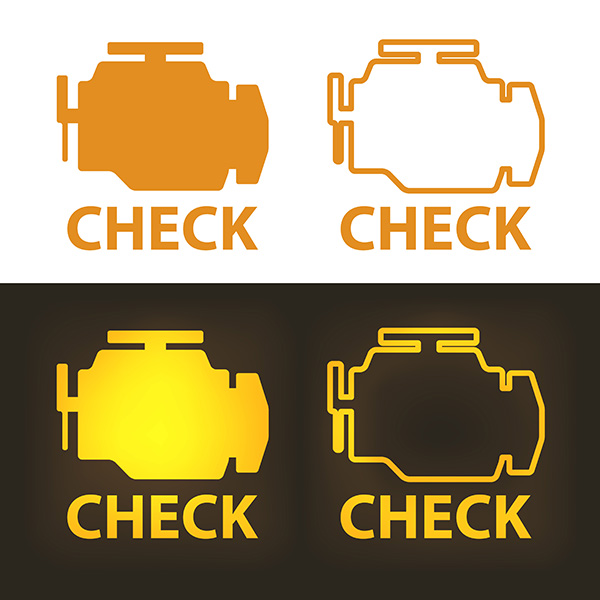
The check engine light is one of the most important warning indicators in your vehicle. While a steady light can signal a range of potential issues, a flashing check engine light demands immediate attention. If you’ve ever noticed this light blinking on your dashboard while driving, it’s important not to ignore it. A flashing check engine light typically points to a serious issue that could cause significant engine damage if not addressed promptly.
Many drivers understandably feel nervous when this happens, but the good news is that prompt action can help prevent more extensive repairs and costly breakdowns. The key is understanding what a flashing check engine light means and what to do about it.
What Does It Mean When the Light Is Flashing
A flashing check engine light is your vehicle’s way of alerting you to an active misfire in one or more of the engine’s cylinders. Misfires occur when the air-fuel mixture inside the engine doesn't ignite properly. Incomplete combustion can send unburned fuel into the exhaust system, potentially damaging components such as the catalytic converter.
Unlike a steady check engine light that might be caused by a loose gas cap or worn sensor, a flashing light is your car’s emergency signal. It means the problem is happening right now and could lead to costly engine or emissions system repairs if you keep driving.
What Causes Engine Misfires?
Misfires have several potential causes. One of the most common failures is in the ignition system, such as a faulty spark plug or ignition coil. These parts are responsible for igniting the air-fuel mixture in the engine. When they fail, combustion can be weak or inconsistent.
Fuel delivery issues can also lead to misfires. A clogged fuel injector, failing fuel pump, or dirty fuel filter can interrupt the supply of fuel to the engine, causing it to run roughly or stall.
Air intake problems are another possibility. If there is a vacuum leak or the mass airflow sensor isn't working correctly, the balance between air and fuel is disrupted, causing the engine to run poorly. Mechanical issues like worn valves or low compression can also play a role, particularly in high-mileage vehicles.
What Should You Do if It Starts Flashing
If your check engine light starts flashing while you’re driving, the best thing you can do is pull over safely and shut off the engine. Continuing to drive, especially at highway speeds or under load, can cause overheating, loss of power, or further damage to engine components.
If you’re close to home or a repair facility, drive gently and avoid hard acceleration. However, in most cases, it’s safest to call a tow service and have your vehicle inspected by a professional as soon as possible. Ignoring the issue or waiting too long can turn a relatively simple repair into an expensive engine rebuild.
How Is the Problem Diagnosed
When you bring your vehicle into a shop for a flashing check engine light, technicians will use a diagnostic scanner to read the trouble codes stored in the vehicle’s computer. These codes help identify which cylinder is misfiring and narrow down the likely cause.
From there, further tests can be performed to check ignition components, fuel pressure, vacuum integrity, and compression levels. The process may seem complex, but with the right equipment and experience, a trained technician can pinpoint the problem accurately and quickly.
Why You Shouldn’t Reset the Light Yourself
It might be tempting to reset the check engine light using a code reader, especially if the flashing stops. However, doing so doesn’t fix the issue—it just clears the code temporarily. The underlying problem still persists, and if left unaddressed, it can resurface even worse than before.
In some cases, repeatedly resetting the light without solving the root problem can interfere with your vehicle’s readiness monitors. This could prevent your car from passing an emissions test or obscure warning signs that need immediate attention.
Preventing Future Issues
Regular maintenance is one of the best ways to prevent misfires and engine trouble. Replacing spark plugs and ignition coils at the manufacturer’s recommended intervals, keeping your fuel system clean, and addressing minor problems before they become major ones can all extend the life of your engine.
Listening to how your vehicle drives is also important. Hesitation, shaking, or unusual noises during acceleration may be signs that a misfire is occurring—even if the check engine light hasn’t started flashing yet. Trust your instincts and get the vehicle checked if something feels off.
Get Expert Diagnostics at Davenport Motor Company in Plano, TX
A flashing check engine light isn’t something to take lightly, but you don’t have to face it alone. Prompt, professional diagnosis and repair are the best ways to protect your vehicle and your wallet.
If your check engine light is flashing or your car isn’t running right, visit Davenport Motor Company in Plano, TX. Our expert technicians are equipped to handle misfires and all types of engine issues, getting you back on the road with confidence and safety.